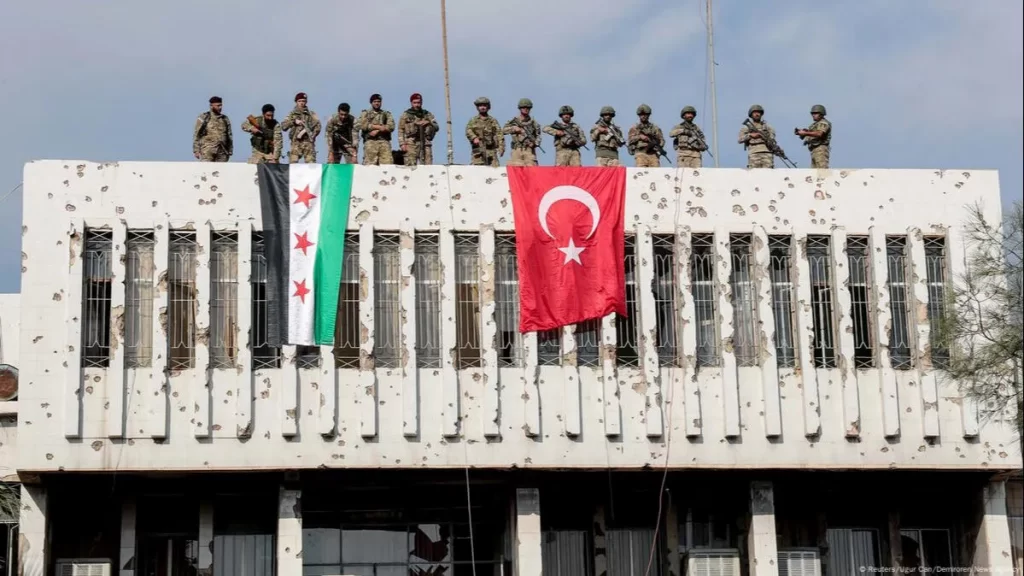According to an analysis by the U.S.-based think tank Atlantic Council, Donald Trump’s Syria policy will likely require closer cooperation with Turkey. The collapse of the Assad regime has significantly altered the power dynamics in Syria, highlighting Turkey’s growing strategic role in the region.

Syria’s Transforming Power Dynamics
Atlantic Council’s report examines Syria’s evolving situation following the fall of Bashar al-Assad. Assad’s swift ouster and subsequent escape to Moscow left Gulf states scrambling to reassess their failed investments in Syria. The analysis underscores Turkey’s pivotal maneuvers in the region, which now place it at the center of Syria’s reconstruction.
The report emphasizes that any future stakeholders in Syria must engage with Turkey, whose influence is key to ensuring stability and progress in the post-Assad era.
Shifting Alliances in the Arab World
Over the past six years, Gulf nations have pursued normalization with Assad’s regime. This included reopening embassies in Damascus after the civil war began in 2011. However, despite Assad’s strengthened position and Iran’s growing influence, Syria’s continued international isolation imposed significant strategic costs.
Countries like the UAE and Bahrain initiated normalization steps in 2018, followed by Saudi Arabia reopening its Damascus embassy in 2024 to counterbalance Iran’s sway. Yet, Qatar resisted normalization, maintaining its criticism of Assad.
In a notable development, Assad attended an Arab League summit in 2024, signaling his reintegration into the Arab diplomatic fold. Meanwhile, the UAE negotiated with the U.S. to ease sanctions on Syria, conditional on halting Iran’s arms smuggling via Syrian routes.

Turkey’s Expanding Influence
Atlantic Council’s analysis highlights Turkey as the most influential regional power in shaping Syria’s future. Turkey’s proactive stance extends beyond Syria, bolstering its position in the South Caucasus and countering Iran. Yet, the report advises Turkey against unilateral action in Syria’s reconstruction. Collaboration with Gulf states is deemed essential for financial backing and legitimacy.
Gulf nations, alongside Turkey, Russia, and Iran, could facilitate dialogue through platforms like the Doha Forum. This cooperation could help stabilize Syria under its new leadership, with Qatar maintaining its support for opposition forces and resisting normalization with Assad’s regime.
Trump’s Potential Role
Assad’s downfall marks a significant setback for Iran. Gulf countries now see an opportunity to strengthen Arab influence in Syria’s future. The Atlantic Council posits that U.S. involvement under Trump could prove decisive. Regional and international support for Syria’s reconstruction is critical to stabilizing the country and weakening Iran’s regional presence.
The report concludes that the Trump administration might collaborate with Turkey and Gulf nations to fund Syria’s rebuilding process. Such cooperation would serve U.S. interests while solidifying regional partnerships.















